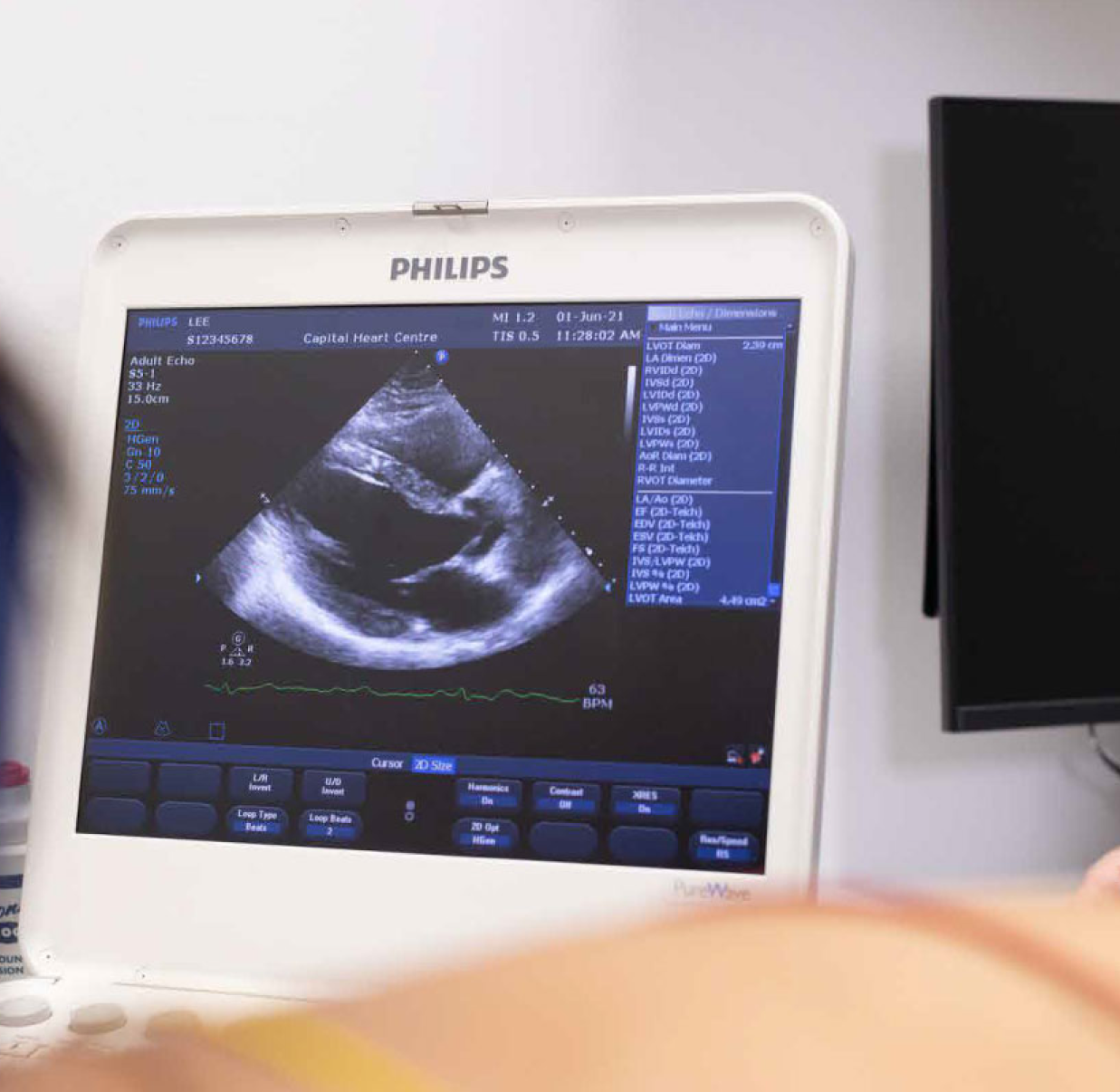
Procedures
Transthoracic Echocardiogram
Transthoracic Echocardiogram
A Transthoracic Echocardiogram (TTE) is a non-invasive imaging test that uses high-frequency sound waves (ultrasound) to create detailed images of the heart's structure and function. It provides valuable information about the heart's chambers, valves, and blood flow patterns.
Purpose:
A TTE is performed to:
Evaluate the overall health of the heart.
Assess heart valve function and detect abnormalities.
Examine the pumping action of the heart (ejection fraction).
Identify any structural abnormalities or congenital heart conditions.
Evaluate blood flow and detect any signs of heart disease.
How It's Done:
- Preparation:
- You'll typically be asked to remove clothing from the waist up and put on a hospital gown. Small adhesive electrodes will be placed on your chest to monitor your heart's electrical activity.
- Application of Gel:
- A water-based gel is applied to your chest. This helps ensure good contact between the ultrasound probe (transducer) and your skin.
- Transducer Placemen:
- The transducer is a handheld device that emits and receives ultrasound waves. The technologist will move it gently across your chest, capturing images of your heart from various angles.
- Image Generation:
- The ultrasound waves bounce off structures within your heart and return as echoes. These echoes are converted into real-time images on a monitor.
- Blood Flow Assessment:
- Color Doppler may be used to visualize the direction and speed of blood flow through your heart's chambers and valves.
- Measurements and Analysis:
- The technician or cardiologist will take measurements of different heart structures, such as chamber sizes, valve function, and ejection fraction.
- Recording Images:
- Images of specific heart structures and measurements are recorded for further analysis.
- Completion:
- Once all necessary images and measurements have been obtained, the gel will be wiped off, and you can return to your normal activities.
Interpretation of Results:
- The recorded images and measurements will be reviewed by a cardiologist, who will assess the overall function and structure of your heart.
A Transthoracic Echocardiogram is a valuable tool in evaluating heart health. It provides detailed information about the heart's anatomy and function, aiding in the diagnosis and management of various cardiac conditions.
The procedure is non-invasive and typically painless, making it a safe and effective way to assess heart health. It does not involve exposure to radiation.
Always consult with your healthcare provider for personalized information and guidance regarding your specific situation.
What Can I Expect?
When you visit a cardiologist, you can expect a thorough evaluation of your heart health. The cardiologist will begin by reviewing your medical history, which includes any existing heart conditions, family history of heart disease, medications you're taking, and any symptoms you may be experiencing.
Next, a comprehensive physical examination will be conducted. This may involve checking your blood pressure, listening to your heart and lungs, and examining other relevant areas. These assessments help the cardiologist gather important information about your overall health and any signs of heart-related issues.
Depending on your specific situation, the cardiologist may recommend additional diagnostic tests such as an electrocardiogram (ECG), echocardiogram, stress test, or other specialized cardiac tests. These tests provide detailed information about the structure and function of your heart, which is crucial for making an accurate assessment.
The cardiologist will carefully interpret the results of any tests and discuss their implications for your heart health. Based on the gathered information and test results, the cardiologist will make a diagnosis, which could range from confirming a previously known heart condition to identifying a new issue.
If necessary, the cardiologist will discuss treatment options. This could involve prescribing medications, recommending lifestyle modifications, suggesting procedures, or, in some cases, discussing the possibility of surgery.
The cardiologist will also provide you with valuable information about your condition, explain any necessary lifestyle changes, and offer guidance on managing your heart health. They will address any questions or concerns you may have, ensuring that you have a clear understanding of your heart condition and the recommended course of action.
Depending on your diagnosis and treatment plan, the cardiologist may advise you to schedule follow-up appointments for further evaluation and monitoring. If specialized care is required, the cardiologist may refer you to other healthcare professionals, such as cardiac surgeons or electrophysiologists.
Throughout the entire process, the cardiologist and their team will prioritize your well-being and provide you with the best possible care. Remember, each visit is tailored to your specific situation, and it's important to be open and honest about your symptoms and medical history. This helps the cardiologist make the most accurate assessment of your heart health and develop a personalized treatment plan.

